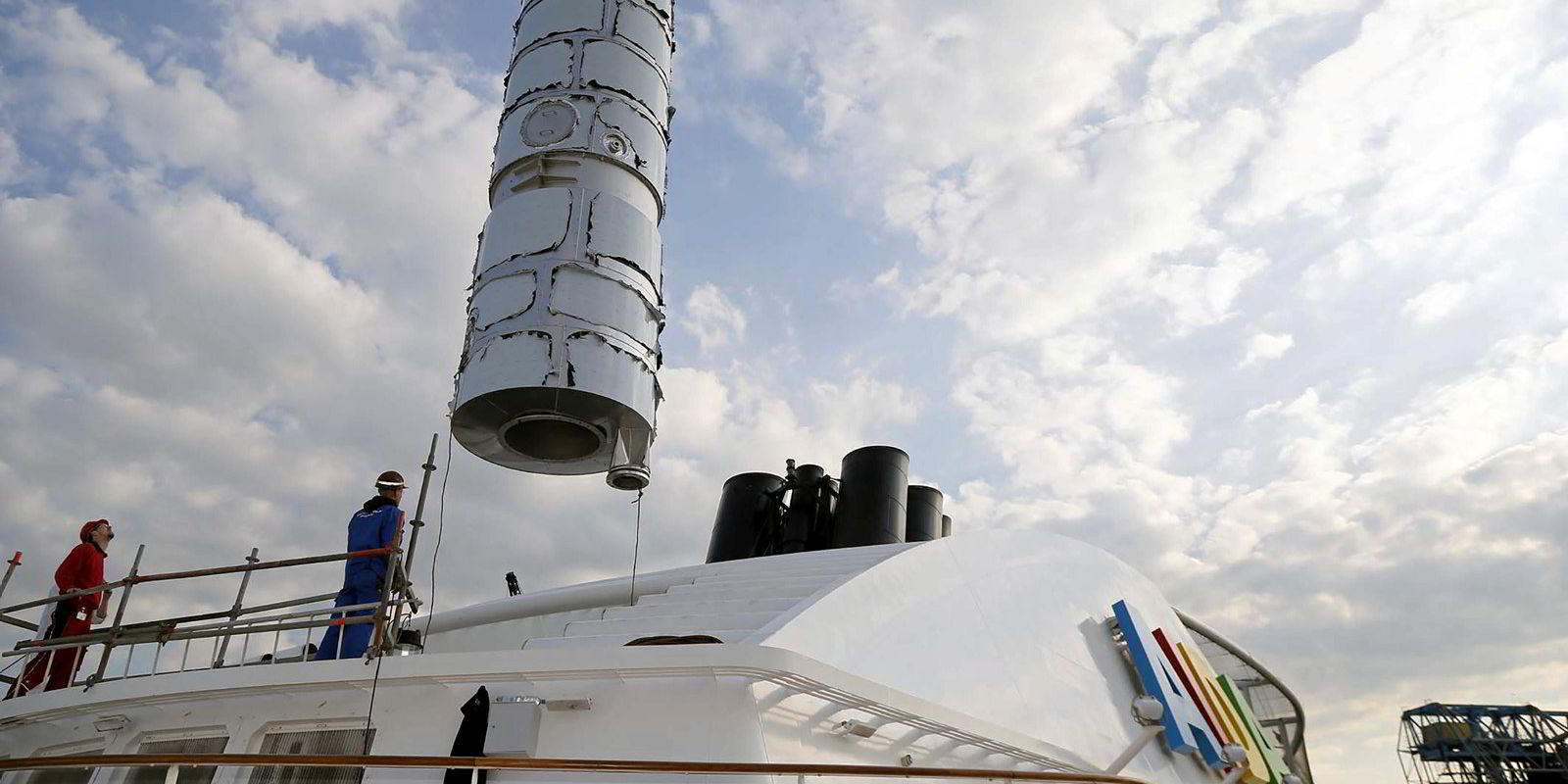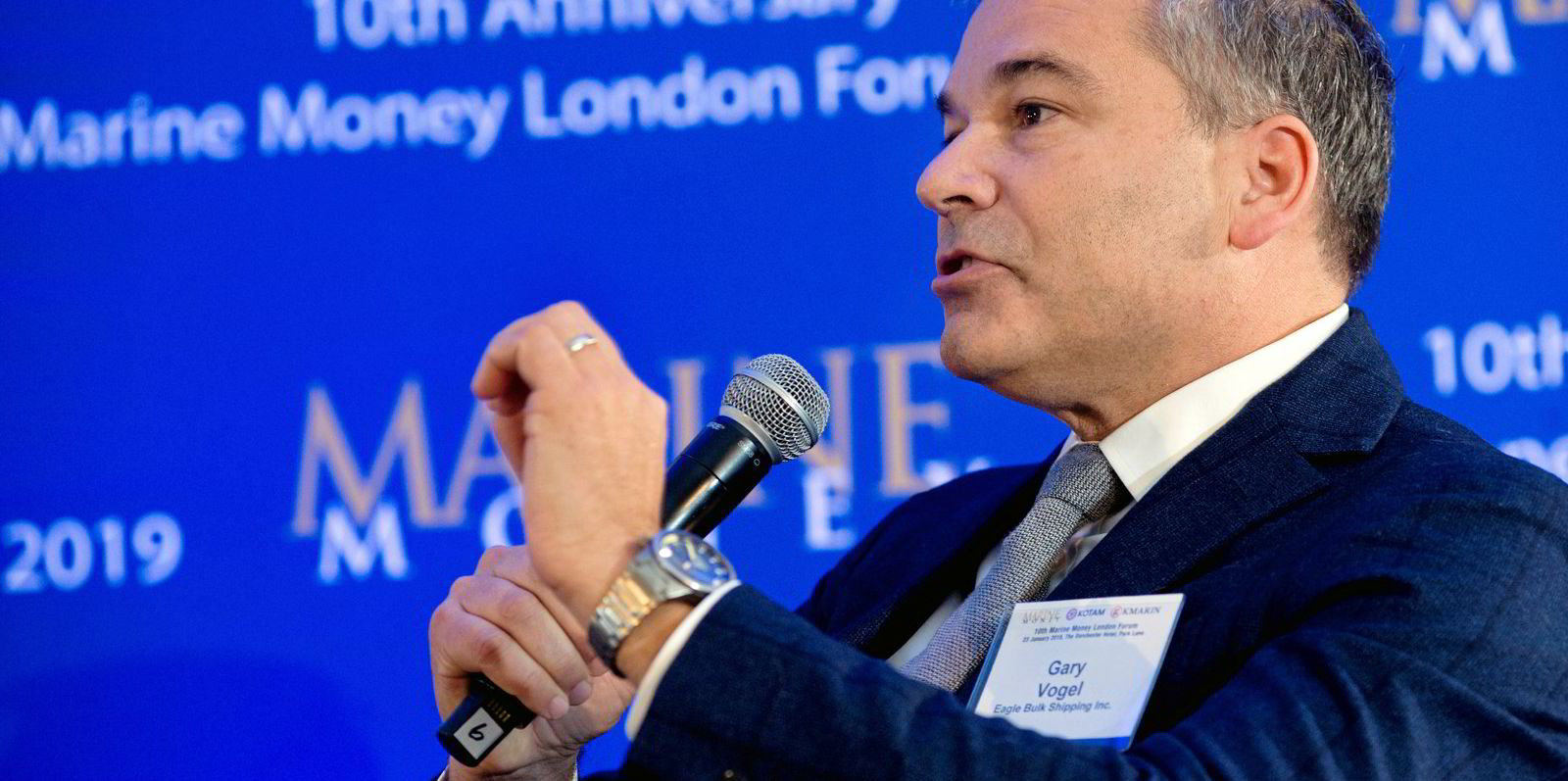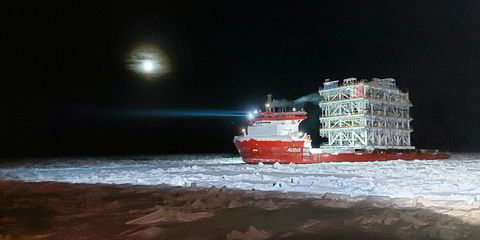You could excuse shipowners that invested in exhaust gas scrubbers for their ships if they had the urge to say, “I told you so”.
Earnings premiums for scrubber-fitted vessels, compared with their peers that must still use fuel that is compliant with the IMO 2020 sulphur cap, have spiked as oil prices surged in the wake of Russia’s invasion of Ukraine.
But that is only accelerating a trend already underway. For many bulker and tanker segments, the earnings spread had already reached the highest level in more than two years, according to a TradeWinds analysis of the latest data from Clarksons.
The data from Clarksons’ research division shows large tankers have the biggest scrubber premium, with data on Friday last week showing that a 2010-built VLCC with scrubbers can reel in above $12,900 per day more than a similar ship without the exhaust-gas cleaning technology. The figure means the gap widened by 33.8% in just a week.
The premium for ships with scrubbers grows as the price spread widens between high-sulphur fuel oil (HFSO) and very-low sulphur fuel oil (VLSFO), which ships without scrubbers must use to meet the IMO 2020 regulation. The gap tends to grow when oil prices are higher.
Recent prices on TradeWinds Markets saw VLSFO selling in Singapore for $852 per tonne — $250 more than HSFO.
While growing scrubber premiums are good news for owners of ships with the exhaust gas technology, it does not necessarily mean that an investment in installing the scrubber in a tanker has proved profitable.
Erik Broekhuizen, manager of tanker research and consulting at shipbroker Poten & Partners, said that depends on factors including when the scrubbers were installed, or whether they were installed in newbuilding construction or, more expensively, as a retrofit to an existing vessel.
But, in general, the periods when the spread between VLSFO and HSFO jumped would have made the exhaust-gas cleaning technology a worthwhile investment for many shipowners in the tanker sector.
“We’ve had a period of very low oil prices, during that period the differential was very small,” the analyst said. “But I think we have also had a period of very high oil prices, and so I think you quickly make up the differences during those spikes.”
Broekhuizen said that in the VLCC and suezmax segment, a substantial number of ships have scrubbers installed and are in a position to set the market.
“They can obviously be so much more competitive than if you have a ship that still needs to buy very low-sulphur fuel oil, especially where bunker prices are higher,” he said.
After starting 2020 with a large spread in the wake of the new IMO sulphur cap, the scrubber gap shrank as a result of the coronavirus’ blow to oil demand.
In the bulker sector, scrubber-fitted capesizes made above $10,000 per day more than non-scrubber ships at the start of 2020, according to the Clarksons data.

The difference diminished over the following years — sometimes to as little as $1,000 per day — but grew once again to as much as $5,000 per day in the days leading up to the invasion of Ukraine.
On Friday last week, the average spot market earnings for a scrubber-fitted capesize came in at about $16,300 per day, beating the rate for a capesize without one installed by nearly $7,600 per day, the data showed.
But even smaller supramaxes are earning a scrubber premium of more than $4,126 per day.
Eagle Bulk Shipping, which has scrubbers on 89% of its supramax and ultramax fleet, has been capturing the savings — but not in the sticker price of its voyage deals.
“We never price freight using heavy fuel. We only do it on compliant fuel,” Broekhuizen told analysts. “And then we get the benefit. When we go to the pump, effectively, we pay less. When we charter a vessel out [on a period deal], we look for 100% of that value.”
Jefferies analyst Randy Giveans, who tracks shipping stocks, expects the likes of New York-listed Scorpio Tankers, Star Bulk Carriers and Eagle Bulk to gain the most from the widened spread because they installed scrubbers on nearly their entire fleets.
“In terms of who will benefit versus who will be harmed in a rising bunker fuel cost environment, we believe owners with scrubber-equipped vessels and in sectors with rising rates will benefit the most,” Giveans said.






